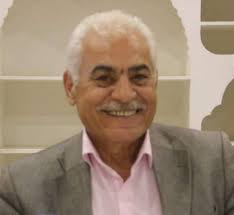
Mikhael Awad (the author and researcher)
Sudan holds a vital geographical position, a strategic role, and a rich natural environment.A reservoir of wealth, precious minerals, and oil.The guardian of the Nile, the Red Sea, the Arabian Peninsula, and the lifeline for Egypt, Libya, Ethiopia, and Eritrea.A gateway connecting Asia, the Arabian Peninsula, and East Africa to the African continent and the Horn of Africa.The breadbasket of the Arab world and beyond.The protector of the Red Sea!Its people are kind, their Islam is humane and refined, and their diversity is innovative.Sudan’s history is illuminated by civilizations, its timeline marked by resistance against colonizers and steadfast struggles.It has offered unique models in politics, governance, and administration, witnessing groundbreaking alliances, such as the collaboration between committed communists and Islamists—an exceptional phenomenon.It remains deeply influenced by Arab and Islamic world events.Its political life is distinguished by unique experiences and dynamic street movements.Sudan has seen coups and democratic transitions, setting a remarkable precedent when General Swar al-Dahab peacefully handed power to civilians—a rare occurrence among military regimes and Islamist movements.Its leadership, following the defeat of 1967, drew clear red lines with the “Three No’s” resolution, which, if upheld, could have spared the Arab world from decline and loss of opportunities and resources.Its Islamic movements have largely avoided extremism, bloodshed, and inhumane atrocities.Sudan has historically provided a haven for the Palestinian cause and those resisting American hegemony while upholding genuine Arab and Islamic solidarity.It played a crucial role in supplying and arming Gaza through Syria and Iran, despite ideological and systemic differences, ensuring resistance endured despite severe blockade and attempts at starvation.For its strategic position and wealth, Sudan became a target.Its south was severed to form a failed state—an artificial construct—designed to exploit oil and control the Nile, impacting both Sudan and Egypt.Despite this, Sudan accepted the referendum and enabled a peaceful separation without massacres or bloodshed.It faced the globalist lobby’s hostility, particularly due to its alliance with the Muslim Brotherhood amid the so-called “Arab Spring.”Its leader was overthrown with minimal cost and bloodshed.The Darfur “Janjaweed” massacres were deliberate and orchestrated.The looting, killings, and gold theft in Darfur are not purely internal phenomena but rather operations led by globalist arms, the same forces that destabilized Libya, tampered with Egypt, and sought to destroy Sudan for its wealth.The alliance between the army (led by Burhan) and the Rapid Support Forces (led by Dagalo) was orchestrated by external operators.With no compelling internal cause—both factions aligned under the same patrons—they plunged Sudan into a fierce war.No real differences exist between them—both normalized relations with Israel.Sudan’s foreign minister openly stated that “Mossad” handled negotiations with Dagalo while the Foreign Ministry dealt with Burhan.Neither side proposed a national vision, a sovereign agenda, or an economic plan to rescue Sudan and secure its people's needs, despite Sudan’s abundance of food, water, oil, gold, and strategic location.In this era of Arab mediocrity and moral decay, the rise of petty players and virtual empires reshaped the region.The UAE, much like Qatar and the “Erdoganist” Islamist factions, interferes in Arab affairs across Yemen, Sudan, Iraq, Libya, and Syria, with ambitions extending to Egypt, Saudi Arabia, and beyond.Private security firms, mercenary companies, globalized Brotherhood factions, and terrorist militias act as tools of the globalist lobby—mirrored by Russia’s Wagner Group.The conflict has settled into a pattern of territorial warfare, destruction, displacement, sexual violence, and resource plundering.Notably, Trump’s electoral success coincided with the Sudanese army regaining momentum, launching offensives, and reclaiming strategic locations.The army’s progress continues—does divine intervention play a role?Is there a direct causal link, or are we witnessing early signs of broader shifts?It remains uncertain whether Trump actively supported the Sudanese army or merely withdrew backing from the Rapid Support Forces.However, the historical patterns of geopolitically crucial nations—like Sudan, and soon Somalia, Eritrea, and Ethiopia—demonstrate their rapid responsiveness to global shifts.These unfolding events carry significant implications for what lies ahead.Sudan was among the first nations where the globalist project was implemented in collaboration with the Muslim Brotherhood and terrorism.Today, Sudan’s events signal that the globalist dismantling project—aimed at breaking nations, destroying armies, and eradicating national identities—is in retreat.A new era dawns, marking the decline of petty players and virtual empires.The diminishing influence of the UAE, Wagner, mercenary companies, and Islamist factions—coupled with the resurgence of national armies and sovereign states—explains Sudan’s shifting landscape and the army’s victories.Will Burhan reverse Sudan’s normalization with Israel and sever ties?Will he meet the needs of the Sudanese people and restore its strategic role?There is much more to analyze and discuss!
Subscribe to Mikhael Awad